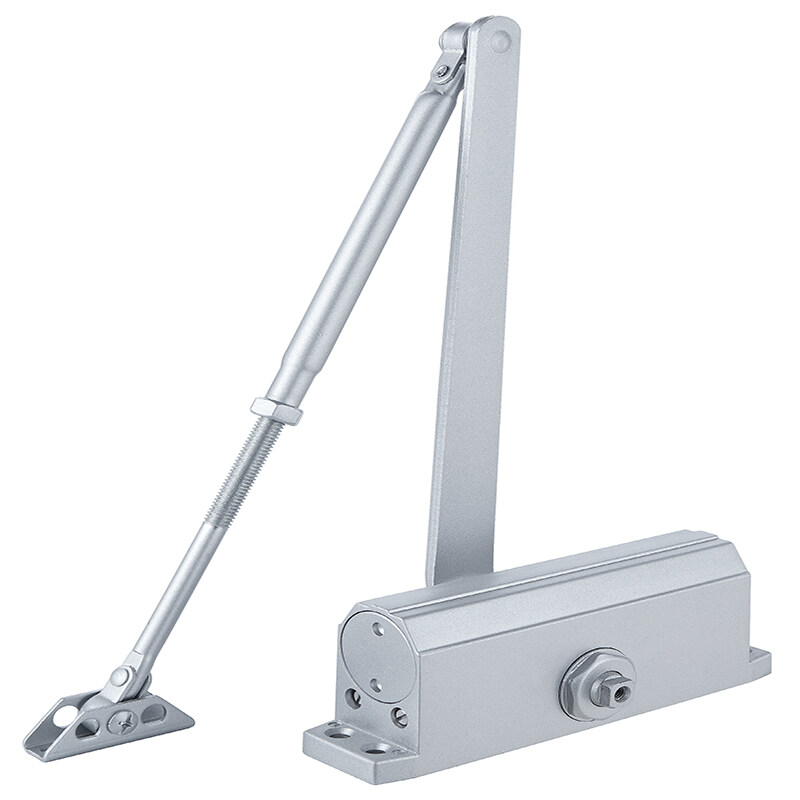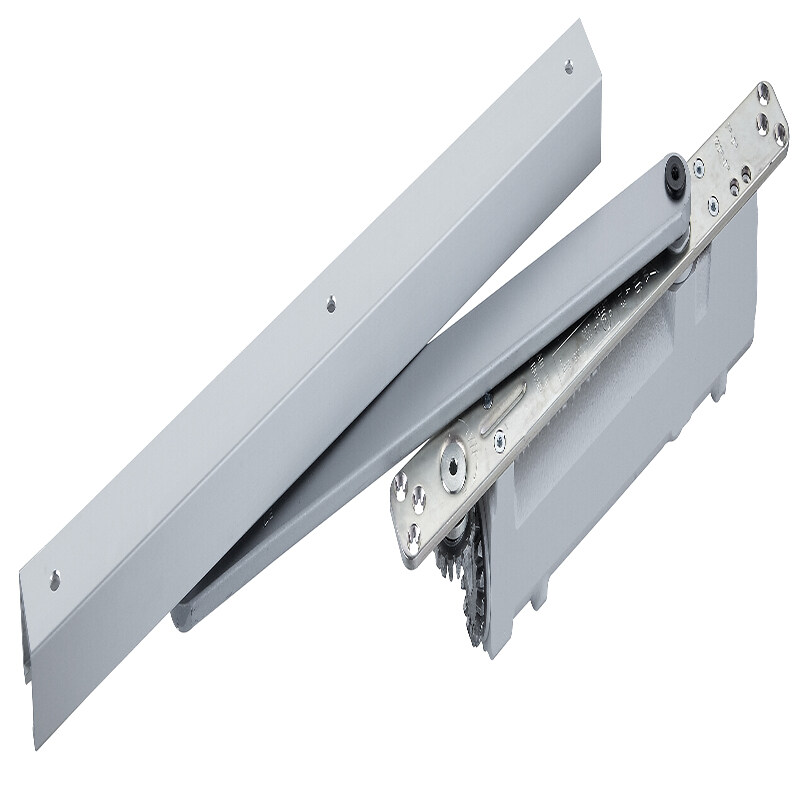Error de formato de correo electrónico
emailCannotEmpty
emailDoesExist
pwdLetterLimtTip
inconsistentPwd
pwdLetterLimtTip
inconsistentPwd

NOTICIAS

Door Closer: Pneumatic vs Hydraulic - Comparison and Troubleshooting Guide
When it comes to ensuring the smooth and controlled closing of doors, door closers play a vital role. There are two main types of door closers available in the market: pneumatic door closers and hydraulic door closers. There provides a comparison between the two and offers troubleshooting tips for common issues such as hydraulic door closer leaking oil and fixing pneumatic door closers.
1. Pneumatic Door Closer: An Overview
Pneumatic door closers are designed to utilize air pressure to control the closing speed of a door. These closers operate smoothly and silently, making them an ideal choice for residential and light commercial applications.
2. Hydraulic Door Closer: An Overview
Hydraulic door closers, on the other hand, use hydraulic fluid to control the door's closing and opening speed. They are known for their durability and adjustable closing force, making them suitable for heavy commercial and institutional applications.
3. Comparison: Pneumatic vs Hydraulic Door Closers
1). Closing Speed and Control:
- Pneumatic door closers provide consistent closing control and a slower closing speed, making them suitable for establishments requiring a gentle closing action.
- Hydraulic door closers offer adjustable closing speed and control, making them ideal for places with varying door usage and heavier doors.
2). Noise Level:
- Pneumatic door closers operate silently, making them a preferred choice for places where noise reduction is crucial.
- Hydraulic door closers may produce minimal noise due to the movement of hydraulic fluid, but advancements in technology have significantly reduced the noise levels.
3). Durability and Maintenance:
- Pneumatic door closers are generally less durable than hydraulic closers and require regular lubrication to maintain optimal performance.
- Hydraulic door closers are built to withstand heavy usage and require minimal maintenance.
4. Troubleshooting Hydraulic Door Closer Leaking Oil
Hydraulic door closers leaking oil can be a nuisance and compromise their functionality. Here are some troubleshooting steps to fix this issue:
1). Identify the source of the leak: Check all the joints, seals, and connections for any signs of damage or loose fittings.
2). Repair or replace damaged seals: If a seal is found to be damaged, it should be replaced to prevent further leakage.
3). Refill hydraulic fluid: If the leak has caused a significant loss of hydraulic fluid, it needs to be refilled to maintain the proper functioning of the closer.
4). Seek professional help: If the issue persists or if the damage seems extensive, it is advisable to seek the assistance of a professional.
5. Fixing Pneumatic Door Closer Issues
Pneumatic door closers can malfunction due to various reasons. Here are some troubleshooting tips to fix common issues:
1). Adjust closing speed: If the door slams shut or closes too slowly, adjusting the closing speed valve can rectify the problem.
2). Check for obstruction or misalignment: Obstructions, misaligned tracks, or improperly adjusted brackets can hinder the smooth operation of pneumatic door closers. Clear any obstructions and ensure proper alignment.
3). Lubricate moving parts: Regular lubrication of the closer's moving parts can enhance its longevity and prevent issues such as sticking or erratic closing.

Pneumatic or Hydraulic Door Closers Based on Your Specific Requirement
Choosing between pneumatic and hydraulic door closers depends on the specific requirements of the establishment. While pneumatic closers offer gentler closing action, hydraulic closers provide strength and adjustability. Furthermore, troubleshooting common issues like hydraulic door closer leaks and fixing pneumatic door closer malfunctions can ensure the optimal functioning of these essential devices, enhancing safety and convenience.
